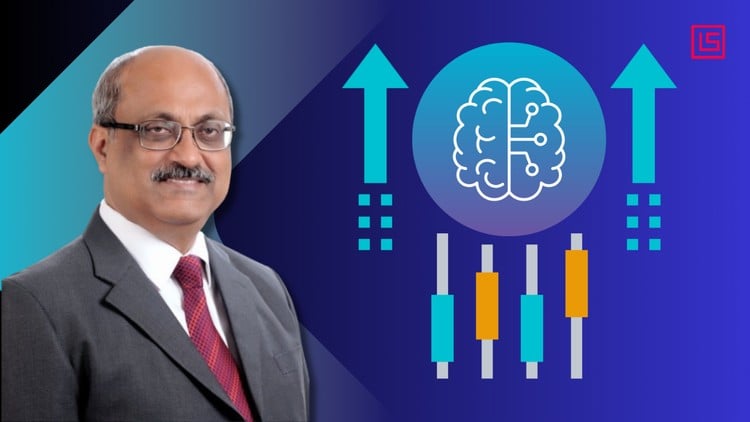
Learn to Build and Backtest LSTM-Based Trading Strategies Using Technical Indicators and Real Market Data
⏱️ Length: 1.5 total hours
⭐ 4.48/5 rating
👥 4,606 students
🔄 August 2025 update
Add-On Information:
Note➛ Make sure your 𝐔𝐝𝐞𝐦𝐲 cart has only this course you're going to enroll it now, Remove all other courses from the 𝐔𝐝𝐞𝐦𝐲 cart before Enrolling!
-
Course Overview
- Master Deep Learning for Trading: Uncover the transformative power of AI, specifically Long Short-Term Memory (LSTM) networks, in revolutionizing algorithmic trading. This course bridges the gap between advanced deep learning concepts and their practical application in financial markets, enabling you to build strategies that go beyond traditional signal analysis.
- Predictive Edge with LSTMs: Learn why LSTMs are uniquely suited to analyze sequential financial data, capturing complex temporal dependencies that traditional indicators miss. Develop the skills to create intelligent, proactive trading signals for buy, sell, or hold decisions, moving from reactive rule-based systems to predictive AI models.
- Hands-On Strategy Development: Engage in a project-based learning experience, from ingesting real-world market data to deploying, evaluating, and rigorously backtesting your own LSTM-powered trading systems. Gain tangible experience in every step of the quantitative trading pipeline.
-
Requirements / Prerequisites
- Python Programming Fundamentals: A solid working knowledge of Python, including basic data structures, control flow, and functions, is essential for coding assignments and project implementation.
- Basic Machine Learning Concepts: Familiarity with core machine learning principles like supervised learning, training, and validation will provide a strong foundation for understanding deep learning applications.
- Introduction to Financial Markets: A general understanding of stock markets, basic trading concepts, and technical indicators will provide valuable context for applying these advanced techniques.
-
Skills Covered / Tools Used
- Advanced Data Engineering in Python: Master Python libraries like Pandas and NumPy to preprocess, clean, and engineer highly predictive features from raw financial time series data, optimizing them for deep learning models.
- TensorFlow/Keras for LSTM Models: Gain hands-on expertise in building, training, and fine-tuning sophisticated LSTM neural networks using TensorFlow and Keras, specifically for financial prediction and signal generation.
- Comprehensive Backtesting & Risk Analysis: Develop robust backtesting frameworks to simulate strategy performance, understand critical metrics like Sharpe Ratio and Drawdown, and refine your models for optimal risk-adjusted returns without look-ahead bias.
- Strategic Signal Visualization: Learn to visualize predicted trading signals on real stock charts and interpret complex model outputs using Matplotlib/Seaborn, ensuring clarity and actionable insights from your AI.
-
Benefits / Outcomes
- Become an AI-Driven Quant: Acquire the expertise to design, implement, and critically evaluate LSTM-based algorithmic trading strategies, positioning you at the forefront of modern quantitative finance.
- Enhanced Predictive Trading: Shift from reactive signal following to proactive prediction, enabling you to identify subtle market opportunities and make more informed, data-backed trading decisions.
- Robust Strategy Development: Build confidence in creating resilient trading systems, armed with a deep understanding of data handling, model training, and rigorous performance validation techniques.
- Career-Ready Skills: Gain highly sought-after, practical skills in deep learning for finance, opening doors to roles in algorithmic trading, quantitative analysis, and fintech innovation.
-
PROS
- Cutting-Edge Relevance: Focuses on LSTMs, a state-of-the-art deep learning technique, directly applicable to current challenges in financial market prediction.
- Highly Practical & Project-Based: Emphasizes hands-on strategy building and backtesting with real data, ensuring tangible skills and practical experience.
- Comprehensive Skill Set: Covers the full pipeline from data engineering to model evaluation and risk management, delivering a complete toolkit for AI-driven trading.
-
CONS
- Requires Dedicated Practice: Mastering these advanced concepts and building effective trading systems demands consistent effort and independent practice beyond the course material.
Learning Tracks: English,Finance & Accounting,Investing & Trading
Found It Free? Share It Fast!